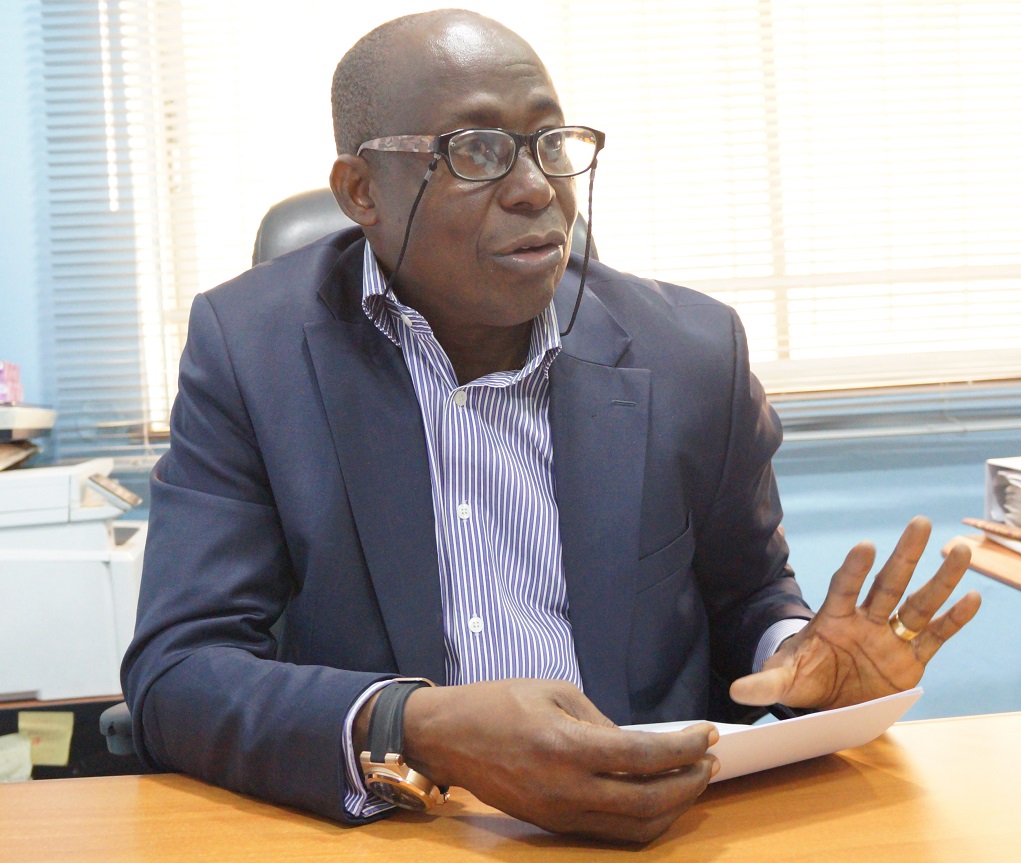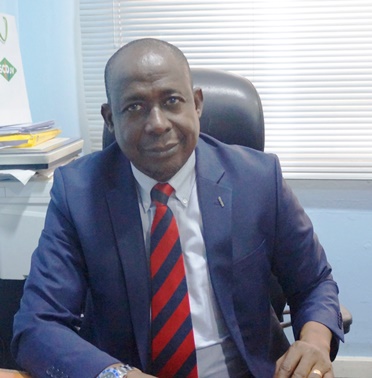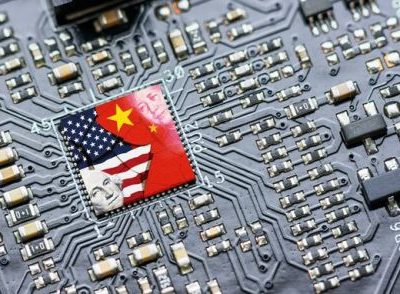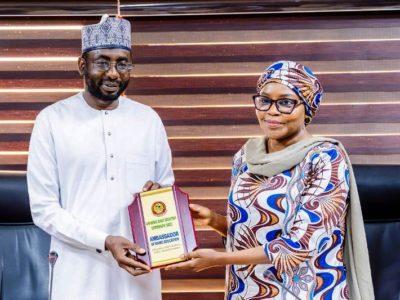COVID-19 has impacted heavily on Nigeria’s economy and as businesses grapple with staying afloat, Director of Operations at PPC Limited, Patrick Ede, tells IT Edge News, Nwakaego Alajemba, that the pandemic has offered a mix of the good and bad. The pandemic has opened new opportunities for innovations. Organizations must rework their business models to remain in operations and be sustainable.
How has the COVID-19 pandemic impacted on PPC Limited – what has changed?
The impact was huge in what I can call the first phase; that is, between when we had the first index case and transition into the lockdown. The lockdown created a heavy cut in revenue. If you look at how businesses were doing before COVID-19 and how they are faring when the customers shutdown – it means we are going to have some revenue cut. Some activities and services will be suspended, that will impact negatively on revenues and that was actually what happened. Some customer will tell you, sorry we can’t take this service this period because of COVID-19 and you can’t do anything about it. That means those expected revenues for that period will be stalled, projects will have to be suspended, sites will be evacuated because government has given order for total lockdown. This means you cannot earn that revenue.
Financially, it’s impacting on everything; projections will be looking differently because of COVID-19. Although we have our medical team doing quite some few things in supporting the medical supplies but that notwithstanding, the case is clear that whatever you projected as your revenue maybe difficult to be achieved because of the pandemic. That is the immediate impact: disruption in financial/revenue projection.
And what has changed? For us as a company, we are still reviewing things particularly now that businesses are gradually opening. We are reviewing what has been impacted on significantly. This means that we are looking at the numbers and sustainability of the business, how the business will look and how do we make what we have be enjoy some level of stability. So it’s a review moment for us. In the past three weeks, we have been having some reviews, some discussions and going through all issues like how do we remedy the fall in some areas. We are still carrying out reviews, hopeful within the next one month we would be able to see where things are going depending on the direction of COVID-19 itself. It’s not something that can be controlled by anybody; if all the protocols are kept, if the curve is flattened, then we could begin to look up to something better. But if the curve is not flattened and we begin to record some rise again, it may be difficult to make concrete predictions. It is tough making any realistic predictions now in the face of this pandemic, and you wouldn’t be able to know the actions to take. As it is now, you really can’t see your front , all you need do is to work on what you know now and then predict in hope of things getting better in future, then create multiple plans; A,B,C in case of any change and if the curve doesn’t flatten.
“Because of COVID-19, the oil price has fallen drastically. Of course, that affects the FOREX [which is] already impacting on business projections as there is about 17% to18% increase in the exchange rate… If you are not listed on CBN’s priority list you won’t be getting FOREX to bring in the equipment that you will need for your telecom infrastructure. You will lose more money than would have been the case if the oil revenue had some stability.”
In your estimation, will COVID-19 lead to job losses and disruption of services in the ICT sector?
Of course, I made this observation in some other conversations. There would be some serious economic impact, people will lose their jobs. The implication will be job losses and that can create social instability and political instability too as time goes on, because when people don’t have jobs they will resort to all sort of things, security issues will come up. There will be job losses, but if the curve begins to flatten there will be some boom in some sections of the IT sector. So it’s not everybody that will record losses, in some areas there is going to be more job creations, not everybody will record equal opportunities. But in all, there is going to be some job losses. A lot of people will not be able to sustain their system with the kind of economic impact that we are witnessing now.
How has the fall in price of oil and FOREX affect PPC and other players in the ICT/Telecoms sector?
Nigeria is almost a mono economy country. We all depend on oil in the sense that most of the FOREX earnings in Nigeria are actually coming from oil revenue. Because of COVID-19, the oil price has fallen drastically. Of course, that affects the FOREX. The exchange rate has jumped from N305 per USD (government official rate) before COVID-19 to N380 per USD during this COVID-19 era. The FOREX is already impacting on business projections as there is about 17% to18% increase in the exchange rate. So there is going to be inflation, there is going to be FOREX issues and of course, if you are not listed on CBN’s priority list you won’t be getting FOREX to bring in the equipment that you will need for your telecom infrastructure. You will lose more money than would have been the case if the oil revenue had some stability.
How do you see the new normal within the context of ‘Work from Home (WFH)’ and ‘virtual transactions for businesses and government organisations?
What COVID-19 has created is people understanding that they can do some jobs differently. We call it work from home, but for me in ICT I call it ‘work from anywhere’. There used to be this system I have, they call it ‘outlook anywhere’, so once I have my laptop, I actually have my office. It’s been in existence but we mostly appreciate it now. The COVID-19 kept us in the house for nearly two months, even up till now must of my colleagues are still working from home because you don’t want to crowd the office area. A few of us come to office and the others are still working from home or working from anywhere because your home may not be in the same city where your office is located. Some people travelled and COVID-19 lockdown caught up with them and blocked them from returning to their base, so they are working from there and they are rendering all the support to their companies. That is the principle that is going to change everything about the way we do business. The COVID-19 impact is going to change things. It tells you now that you don’t need a large office space, you may not even need an office space, it’s just work from anywhere because there are those who don’t even need to come to office, you give them assignment and give them a deadline and they present it before the deadline. Now there are virtual meetings going on everywhere via video, like Zoom, Google, Skype, etc. Also, there are small tech teams even in Nigeria here developing their own app that will allow you do video for schools. There are a lot of virtual thing going on and now look, I don’t need to live in the USA for me to work in the USA, I can work from here and support them there, we can only see ourselves during the virtual meetings. You see your colleagues virtually, talk to them and hold meetings with them and that is becoming the norm which is why I said it’s actually the new normal. And then the old form may still be there because some businesses may need it. But that of office space, you can do smart office, you can do office sharing, just have one small space where you may need to see your clients once in a while and reduce cost of running the company. Then you can sign to share the cost, that’s why I said cost reduction in term of reducing the cost of office space. It’s going to be a new normal and it’s actually a wonderful thing now.You don’t need to wake up in the morning and jump into the bus or train and must be in the office by 7am, No! Why don’t you wake up by 5am and set up your working tools and be ready for the business of the day by sitting on your desk and get working straight ahead. You only go to office when you need to go there and not every day of the week. You reduce your stress and gain more life for yourself. That’s the benefit, reduction in your cost of running the company, office space, save your health issues and save yourself all the stress.

Don’t you think the new normal requires a lot of discipline and may challenge the way we work especially working from home?
What I see is the challenge that may come from our lack of infrastructure which I see as a huge problem for Nigeria. Our electricity system is not stable, that’s a big challenge. If you have to work from home and there is no electricity, the work will be useless; you may not be able to meet up with the target. If you have to work from home and your data network is fluctuating, it’s going to be a big challenge since our internet system here is unstable, and if you wish to buy more stable one you will have to spend a lot. In all, you may still save some cost because you will go online only when you need to go online and work offline when you need to work offline. Yeah, it requires some discipline, how you create discipline is an issue which you do yourself, you can schedule your activities for the day, there are a lot of applications that can help you to manage your activities.This can reduce the chances of infections as you don’t meet people face to face only virtually which helps to flatten the curve.
How do you see the future of Nigeria’s telecoms/ICT sector in the post COVID-19 era?
In the post COVID-19 era, some smart companies may want to do some innovative products, they will create some initiatives to make more money. That area will become like software development or application development to support the kind of platforms we will be running. You will find out that there will be some employment opportunities in that area; job opportunities, business opportunities and then more startups will emerge. The young millennia who are doing a lot trying to develop some software applications would be having very good opportunities there to employ others. Some other areas will have to be changed. In all, we could have some benefits or some boom in the ICT sector. The reason why I said boom is that many small enterprises before COVID-19 didn’t appreciate they needed IT to work. Today, those small enterprises will want to have a service agreement with an ICT company for supporting them. So every small or medium enterprise would want to have some kind of IT infrastructure to be able to join the era of ICT driven enterprise. COVID-19 will usher the virtual era. We are now having meetings virtually, and now, you can call for a business meeting at any time, it could even be in the night. If you have a tender to summit, you can review your proposal online with your customer, without standing up to go and meet them face to face. Now those small enterprises are going to need a lot of IT and this will create a lot of opportunities in different sectors be it health, education, etc. In education for instance, opportunities in e-learning, e-training, e-school or online schoolingand other online educational activities have increased tremendously. In post COVID-19 era, the ICT sector will have some substantial good opportunities out there for entrepreneurs and innovators.
What are the steps government needs to take to support technology startups and prevent social unrest?
We have had some discussions about starting an ICT bank, like we have agric bank. The ICT bank will gear towards supporting technology startups especially in the ICT area. That is one good thing that will happen when you have that kind of bank. With such a bank, tech startups can go there and take a loan, probably short, medium or long term loans to setup their businesses and then expand. That is one way government can help in supporting tech startup businesses. Other ways is by creating import waiver, tax waivers and reducing interest rates from regular banks for those who are going to invest in ICT or develop ICT startups. Such supports will help the startups.
PPC is a member of the Association of Telecommunications Companies of Nigeria (ATCON), how is your association engaging government to mitigate some of the challenges faced by your members?
The current team is actually doing quite a lot. You see them appearing in every challenge for example, the Right of Way issue (RoW), there was a new action in Lagos where they say if we don’t come when the road is being constructed, we shouldn’t come after the construction of the road. The ATCON team intervened and they took the action to the members. ATCON became a bridge between the government and the members, trying to ensure that the challenge that could occur after road construction is mitigated, making sure every member is aware of when certain roads will be constructed, and they will ask if you have any plans of laying cable along that route. They intervened in so many things that have to do with government. ATCON has brought a lot of issues affecting members to the government, they sit with the government, they present those cases and sometimes they come back with results. When the COVID started, ATCON went out there and secured clearance permit for its members, both telecom operators and telecom supplies companies so they would be able to move around during lockdown without any disturbance. Those are the kind of challenges they are trying to sort out so they are actually doing a lot of work now byiIntervening in cases and issues that involve all their members.





























